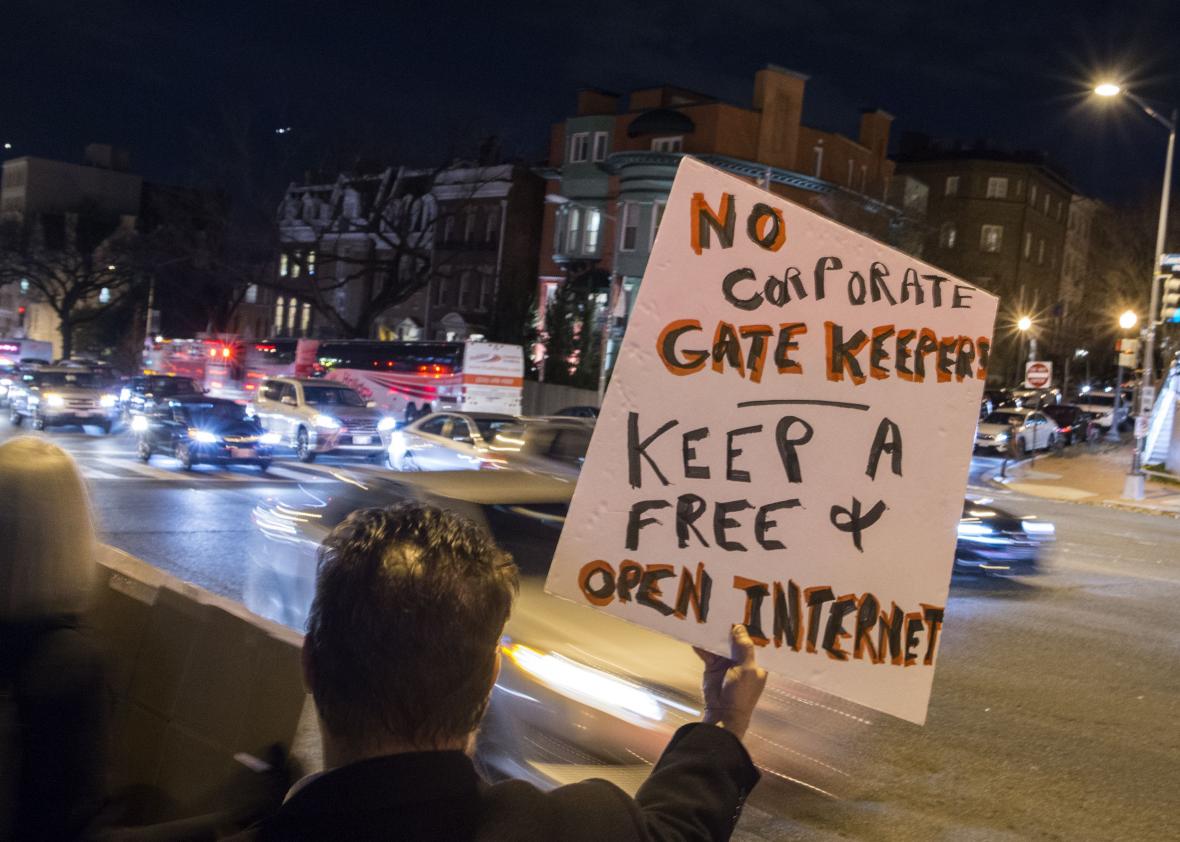How the Far Right Is Reacting to Net Neutrality’s End

ANDREW CABALLERO-REYNOLDS/AFP/Getty Images
Far right and conspiracy-minded sites were applauding the FCC’s vote on Thursday to end Obama-era regulations preserving net neutrality, the principle that internet service providers cannot control speeds at which certain websites load.
A reporter for Breitbart characterized the vote as a move to “restore the Federal Trade Commission’s (FTC) traditional authority and expertise to regulate and litigate unfair, deceptive, and anti-competitive telecommunications practices without onerous regulations and increased cost.” Andrew Anglin, the editor of the neo-Nazi Daily Stormer news site, wrote, “This is the first step in a drastic reshaping of internet, making it free as it was before Obama’s second term.” Alex Jones of Infowars, in his livestream after the vote, said, “[FCC chairman] Ajit Pai’s a hero.”
On Gab, an alternative to Twitter for the extreme right, users also by and large applauded the repeal. For some, the notion that liberal entities were supporting net neutrality was enough reason to scrap it. One user wrote, “The only thing people needed to know about ‘net neutrality’ is that Obama, Google, FaceBook, Twitter and a number of other large corporations wanted it. That and that alone should have raised red flags.” Others accused corporations and “globalists” of covertly spreading propaganda to control discourse during the debate.
However, as Daily Beast senior news editor Ben Collins pointed out, these anti-establishment sites may actually be more vulnerable without net neutrality regulations.
Somebody should tell pro-Trump websites like InfoWars, Breitbart and Daily Stormer that the same calls to ban them from domain registrars and ad networks will now be directed at ISPs.
— Ben Collins (@oneunderscore__) December 14, 2017
With net neutrality dead, those ISPs now have the ability to do something about it.
In August, GoDaddy announced it would no longer host the domain for the Daily Stormer after it published an article mocking a victim of the vehicular attack during the Charlottesville protests. Before GoDaddy’s decision, the online community was active in flagging the article by tweeting it to the company. Now that internet service providers can block content with the repeal of net neutrality, they too may receive pressure from the public to block these websites.
Yet, if popular anger at the repeal continues, such a possibility may be a stretch. Josh Stager, a telecommunications law and policy specialist at the New America foundation, wrote in an email, “I’m also pretty skeptical that the public—which is enraged over this decision and loathe their ISPs—is going to be clamoring to ask Comcast and AT&T to block anything. People aren’t eager to embrace their ISPs as gatekeepers of the internet.” (New America is a partner with Slate and Arizona State University in Future Tense.)
Future Tense is a partnership of Slate, New America, and Arizona State University.
